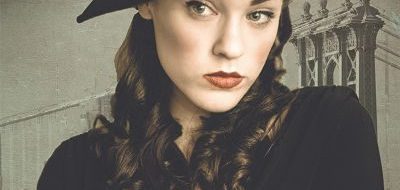In this historical queer novel, a cosmopolitan nightclub singer takes note of an aspiring actress. Will the ingenue take her LGBT cue from the worldly warbler?
What do you call a bearded lady in 1941? Alice Huffman. Straight out of high school, country gal Al is Broadway-bound and determined to make her stage presence felt.
Alice is accompanied by a couple of pals, as well as her faux beau Danny. Danny may not be a thespian like Al, but they both spend an awful lot of time acting around each other. No one, however, puts on a better act than cabaret crooner Juliana Styles. Now there’s a woman who knows how to do a number.
Al is at sixes and sevens, but she can’t put two and two together. Sure, Juliana may be the most aromatic, aristocratic woman Alice has ever met, but there’s nothing queer about her instant interest in this wartime warbler.
Is there? There can’t be. Al is a jam, a sobriquet for those who are not gay, which means that all these newfangled, star-spangled feelings she’s experiencing simply signify that she’s lovesick, not… sick sick.
So, when offered the role of Juliana’s lover, Al accepts. But World War II has set the stage for upset, and, after a while, another part comes Al’s way courtesy of a new suitor. It’s the dual role of wife and mother, and this time, Alice may not have the requisite range.
Can Juliana queer the way for Al to embrace her Sapphic proclivity, or will Alice welcome the opportunity of a lifetime commitment to heteronormativity?
If Al Huffman doesn’t get out of this jam, she won’t be the only one in a huff, as readers will be rooting for her to accomplish what she came to New York City to do: “Something completely absolutely wonderful.” What Al wants to do with her life, the author has done with her book. Vanda’s Juliana is composed of piquant prose that is at once ethereal like smoke rings, and snug as a snood. Its pitch neither too sharp nor too flat, the novel strolls along sequentially, with everything in apple-pie order.
Vanda’s clean-shaven style amplifies the creative ways in which lesbians and gays in the 1940s compartmentalized their identities like meals at an automat. But Al and company don’t need blackout curtains to avoid detection by enemies and traitors. They just need respect, affection, and recognition. And that’s how, like a Victrola, they find their groove. Juliana is the opening act in a series of stories that will cover, discover, and recover LGBT history. I can’t wait for the next edition of yestergay’s news to come out.
